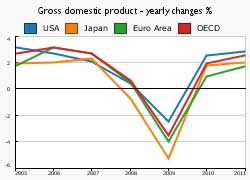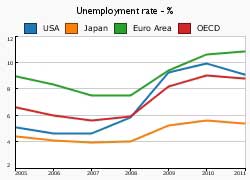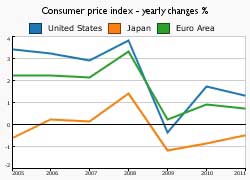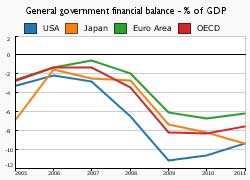-
-
China Daily E-paper
Reports
Recovery still too timid to halt rising unemployment
(OECD)
Updated: 2009-11-26 15:05
The economic recovery now spreading across OECD countries is still too timid to halt the continuing rise in unemployment, according to the OECD’s latest Economic Outlook.
The jobless rate is expected to peak in the first half of 2010 in the US, but it may not be until 2011 that unemployment begins to fall in the Euro area.
The report says the recovery is tepid because economic activity is being held back by households and businesses repairing their finances and reducing their debts. With a subdued recovery and substantial spare capacity, inflation is projected to continue to fall well into 2010.
The US is recovering with the help of government stimulus measures, a rebound in world trade underpinned by increasing demand from large emerging-market economies, stockbuilding by businesses and stabilisation of the housing market. US gross domestic product (GDP) is expected to grow by 2.5% in 2010 and a further 2.8% in 2011.
Euro area activity will benefit from the same growth drivers as the US, but work-sharing schemes and other factors which have helped maintain many jobs during the crisis may also weaken the rate of job creation over the coming months. As a result, household confidence is likely to remain weak which could sap the strength of the recovery. The Euro area economy is projected to grow next year by 0.9% and by 1.7% in 2011.
Japan should benefit from strong growth in the rest of Asia, but weak domestic demand will continue to limit activity. Deflation is expected to linger. The economy is expected to grow by 1.8% and 2.0% in 2010 and 2011 respectively.
“The good news is that the recovery – albeit a weak one – is underway,” said OECD Secretary-General Angel Gurría. But he added, “With millions of jobs lost and public budgets under strain, governments will have to tread carefully in the months ahead. Removing stimulus measures is imperative but such action has to be carried out gradually to avoid undermining the recovery.”
Jorgen Elmeskov, acting Chief Economist of the OECD said, “Unprecedented policy efforts appear to have succeeded in limiting the severity of the downturn and fostering a recovery to a degree that was largely unexpected even six months ago. “ He added: “It is now time to plan the exit strategy from the crisis policies, even if its implementation will be progressive.”
Mr Elmeskov said government budgets had suffered badly from the crisis. The gross debt of most OECD countries could be larger than their GDP by 2011. Action to bring public finances under control will need to be substantial in most countries and drastic in some. But he added that spending cuts or tax increases should not be carried out at a pace or in areas that would weaken the recovery.
“Radical policy action will be required in the years to come to restore sound macroeconomic balance, healthy growth and low unemployment, “said Mr Elmeskov. “Only when that has happened will the crisis have been fully overcome.”
|
Key regional charts |
|
|
 |
 |
|
 |
 |













